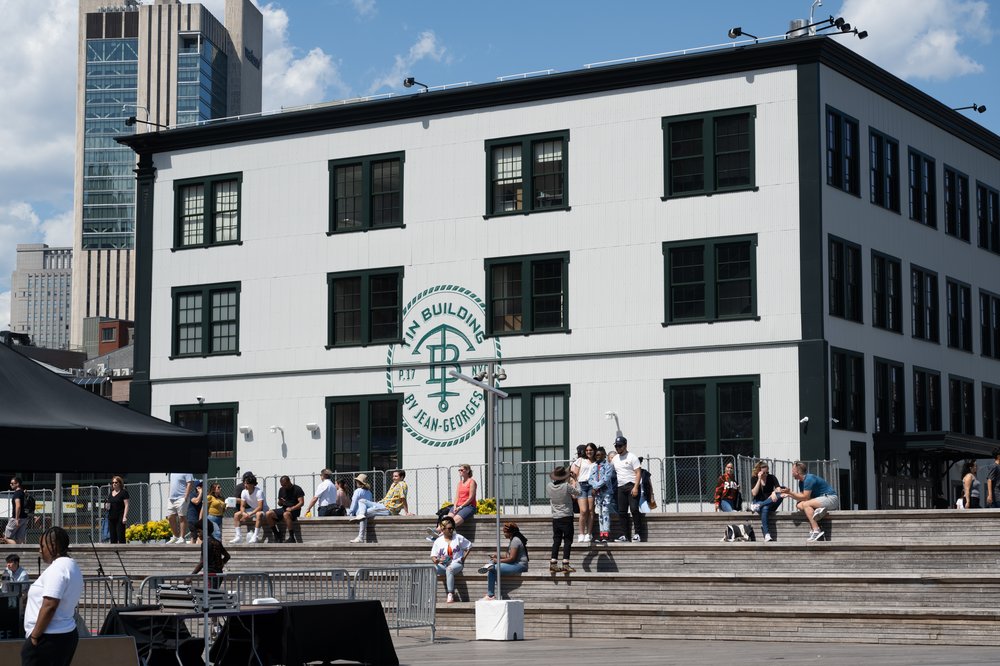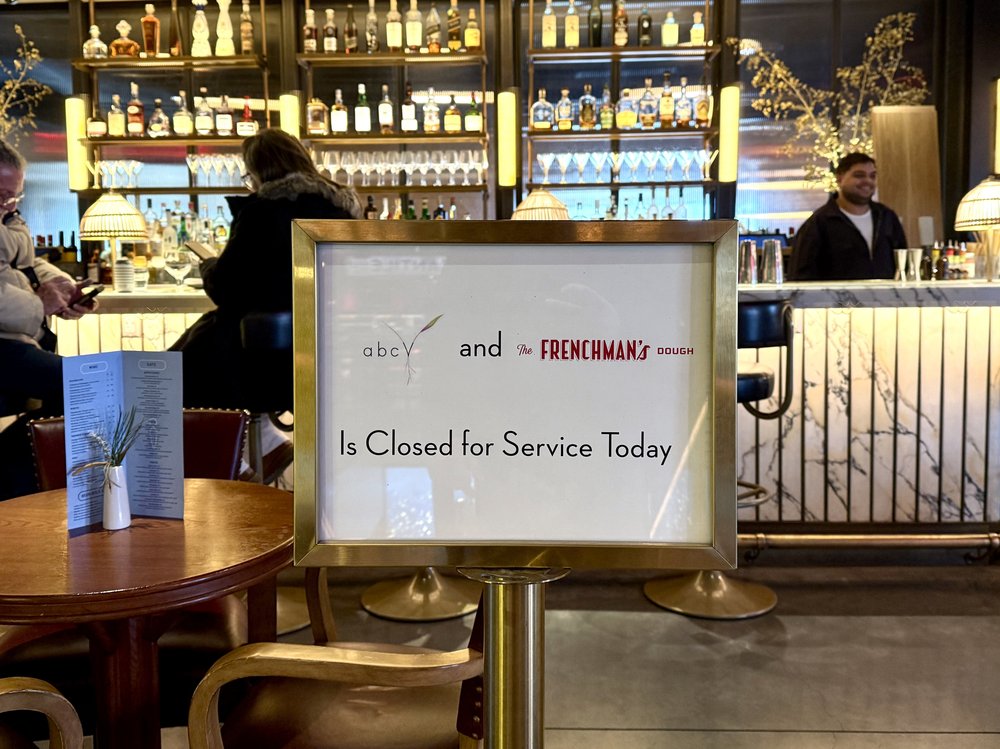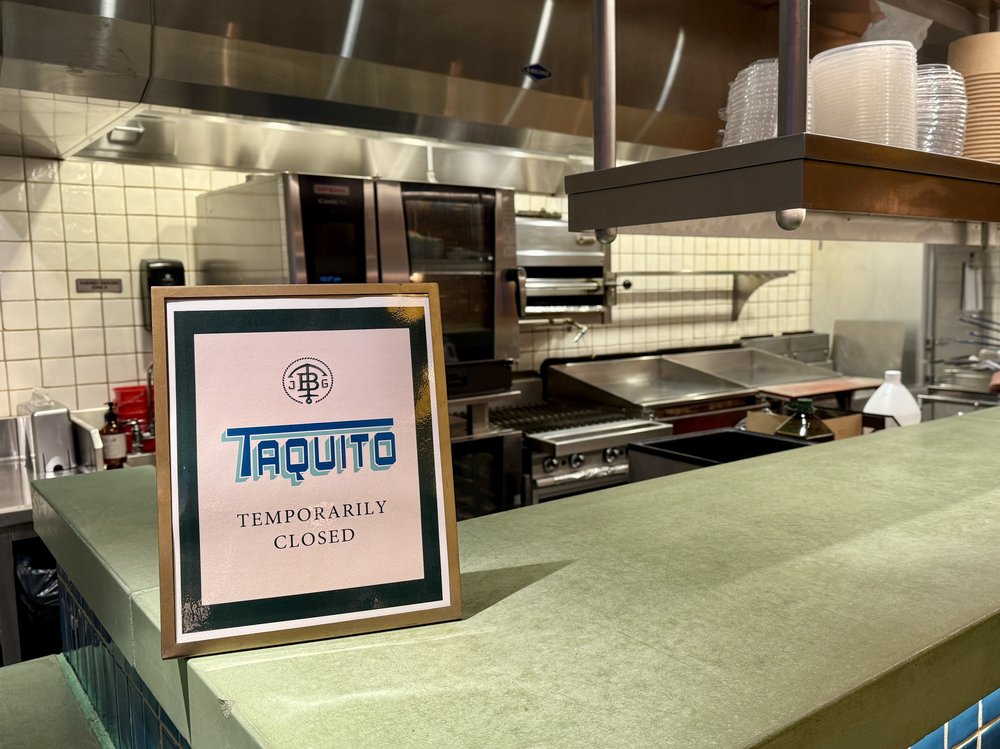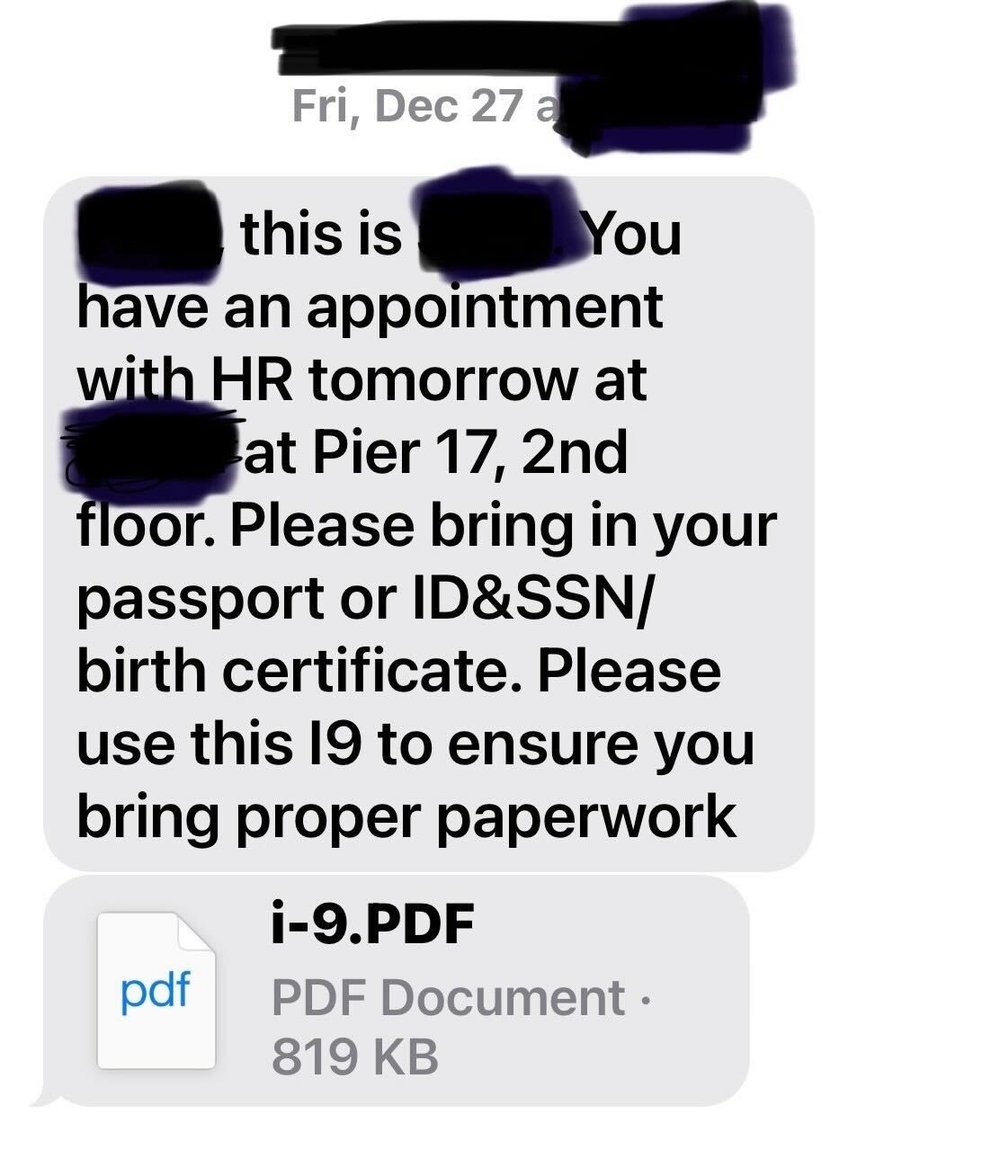At least 100 workers at NYC's Tin Building lose jobs after employment authorization check
Jan. 10, 2025, 5 a.m.
“I was out for two days, and when I got back half the building was gone,” said one current employee of the South Street Seaport food hall's sudden document check.

At least 100 workers at the Tin Building by Jean-Georges lost their jobs after their employer performed a surprise check of identity and employment authorization just before the new year, according to estimates from several current employees and managers.
“I was out for two days, and when I got back half the building was gone,” said one current employee, who requested anonymity in order to discuss their workplace. Six other employees, who also asked to not be identified due to fears of retaliation, shared similar stories of mass job cuts at the end of December.
The cuts primarily affected Latino kitchen and custodial workers, the employees said. The company that owns and operates the Tin Building by Jean-Georges confirmed it performed employment authorization checks due to an internal restructuring, but would not comment on the number of people who lost their jobs as a result.
“Chefs, line cooks, maintenance workers, servers, the people who do our garbage and recycling,” said another current employee, referring to their fired colleagues. “It’s everyone.”

The sudden, sweeping crackdown offers a glimpse into the precarious nature of working in the city’s restaurant industry. A study looking at 2018 employment by the Center for Migration Studies estimated that roughly 74,700 restaurant workers in New York State are undocumented.
The employees who lost their jobs worked at the Tin Building by Jean-Georges, a gleaming $200 million food hall that was heralded as New York City’s “new food epicenter” when it opened in summer 2022, but which has struggled deeply since then, losing its parent company more than $100,000 a day on average, or $83 million in total, according to publicly available financial records.
The building’s losses are staggering, according to two investment analysts who research similar properties, including Chelsea Market and Eataly.
Asked whether the job cuts were related to the building’s financial struggles, a spokesperson said they had not heard anything to that effect.
The identity checks and terminations came as the Tin Building’s landlord and corporate patron, Seaport Entertainment Group, moved to hire the building’s workers onto its own payroll as part of an internal restructuring, a company spokesperson confirmed.

A spokesperson for SEG said that management learned at the last minute that employees would have to be hired and onboarded differently than previously planned. The company declined to comment further when asked why it verified the workers’ employment authorization status.
Workers have up to 10 days to come back with proper paperwork, and would be welcomed back to work if they are able to finish the verification process, the spokesperson said.
But the employees interviewed for this story said their affected colleagues still have yet to return to work 13 days after the verifications began on Dec. 28.
‘You have an appointment with HR tomorrow’
On the night of Friday, Dec. 27, Tin Building employees said they began receiving texts from their managers informing them of upcoming HR meetings for which they would need to bring identification documents specified in the federal employment eligibility verification form I-9.
The employees had already provided these documents upon their initial hire, a company spokesperson confirmed.

Some employees were given less than a day’s notice for their meeting, according to two time-stamped text messages reviewed by Gothamist.
As a result, dozens of workers failed to show up to work that weekend, leading several of the food hall’s restaurants to close early each day, if they opened at all, the company confirmed. Managers told them that at least 100 workers who failed to complete the paperwork by Jan. 1 lost their jobs, the employees said. Repeated attempts to reach workers who lost their jobs during the shuffle were unsuccessful.
Multiple visits to the Tin Building since late December found ongoing closures or cutbacks in hours at its salad and sandwich counter, French restaurant T. Brasserie, sushi restaurant Shikku, taco counter Taquito, and more.
A company spokesperson said that while the sudden loss of staff disrupted business operations in late December, the ongoing closures and cutbacks were preplanned in order to re-engineer the spaces during the slow winter season.
After arriving at work on Friday, Jan. 3, one employee said they were shocked when their manager told them the Tin Building outpost of abcV, Jean-Georges’ critically acclaimed vegetarian restaurant, had closed for good. The restaurant’s page was removed from the Tin Building and Seaport websites, and its business entry on Google Maps reads “permanently closed.”
A company spokesperson said that abcV at the Tin Building is not permanently closed, though there is not currently a reopening date.
On Sunday, SEG posted openings for more than a dozen Tin Building jobs, including dishwasher, prep cook, line cook, sous chef, barback, barista and server positions.
A spokesperson said that while these postings are new, the company was hiring before the December disruption as well.
Jean-Georges Restaurants, which has a joint venture with SEG in the Seaport, did not respond to requests for comment.
'A fine line'
Under federal law, all U.S. employers are required to verify their employees’ work authorization status upon hire, according to Jacob Monty, founder of Monty & Ramirez LLP, a law firm specializing in employment, labor and immigration compliance.
In practice, Monty said, fake papers that pass muster are easy to obtain, and employers that scrutinize some employees and not others open themselves up to accusations of document abuse and discrimination.
“Employers are caught between a rock and a hard place,” Monty said. “You have to walk a fine line between giving the verification law some attention, but not going overboard.”
SEG, a publicly traded real estate company that owns several properties at the Seaport and elsewhere, owns a 25% stake in Jean-Georges Restaurants and 65% of the Tin Building by Jean-Georges, whose operations it funds in a joint venture with the celebrity restaurateur. Tin Building employees initially worked for a subsidiary of Jean-Georges Restaurants but were hired onto the SEG payroll in December.
Unlike previous management, SEG uses E-Verify, the online verification tool administered by the Department of Homeland Security, an SEG spokesperson said. E-verify requires the same documentation as the I-9 form, but adds an additional layer of scrutiny by comparing submitted documents with government databases.
E-Verify is required for some or all employees in many states, but not in New York. Many immigrant advocates have criticized it as ineffective and invasive.
“You can get fake documents for $200, and for $600 you can get fake documents that clear E-Verify,” Monty said. “That’s the thing about E-Verify… it doesn’t work.”
A state Senate bill known as the “Employee Privacy Act,” would bar most New York employers from using the system. Laws restricting E-Verify have already passed in Illinois and California.
SEG uses E-Verify because Howard Hughes Holdings does, a company spokesperson said. The Texas-based real estate development and management company was the original investor and Tin Building partner with Jean-Georges, but spun off its Seaport properties into SEG last summer.
“Reverification,” or checking employees’ authorization documents after their initial hire, is unusual, not required by law, and should only happen under circumstances like an audit by U.S. Immigration and Customs Enforcement, or if a specific employee’s original documents are expiring, said Mel González, director of the Employment Law Project at the New York Legal Assistance Group, which provides free legal services to New Yorkers.
SEG holds that this was not a reverification but an initial verification, because the employees were technically hired by a new company, a spokesperson said. This was not a sale, transfer, merger or acquisition, they said – the workers ceased employment with Jean-Georges’ subsidiary and started new employment with SEG.
Multiple immigration and labor lawyers interviewed for this story said the reality was more complicated, and that this could be considered reverification as the employees were likely under “continuing employment” from one entity to the next.
Employees who passed the verification and remained employed said they were deeply troubled and demoralized by the cuts.
“Let it be known that this place is really not doing things right,” one current employee said. “Undocumented immigrants hold up the whole hospitality industry.”
Correction: An earlier version of this story misstated an estimate on the total number of workers in the city’s restaurant industry.
A cheesesteak star is born: Bradley Cooper's East Village pop-up is buzzing Dry January is back. And no, it doesn't annoy these NYC bar owners.